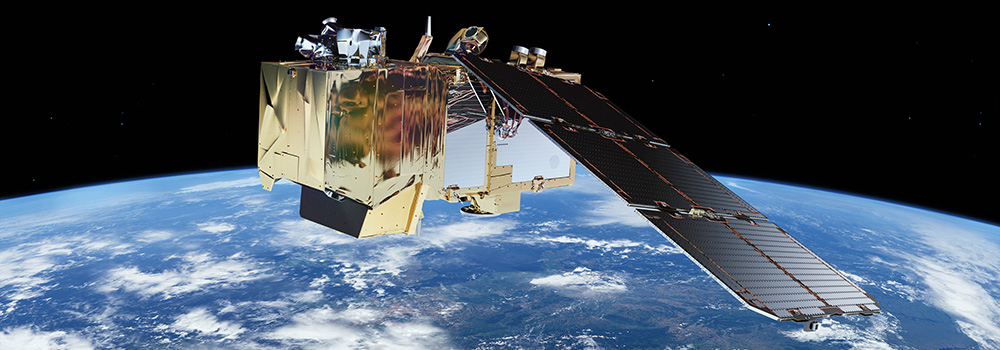Difference between revisions of "Remote Sensing"
| Line 9: | Line 9: | ||
== Guidelines == | == Guidelines == | ||
=== | ===Satellite products=== | ||
=== | ===Remote sensing datasets=== | ||
=== | ===Example of papers using remote sensing=== | ||
== Back to Parent == | == Back to Parent == | ||
Revision as of 05:27, 7 November 2017
Remote Sensing involves the collection and interpretation of information sensed from distant objects, using usually aircrafts and satellites [1]. It’s more common use it to sense the energy that is naturally emitted or reflected by the earth’s surface, from the atmosphere or from other devices [2]. Any object with a temperature above the absolute zero (-273°C) emits energy called electromagnetic radiation that depends on the object’s temperature. The higher the temperature of the object, the shorter it is the reflected electromagnetic radiation wavelength [3].
Read First
This section is a complement of the Geo Spatial Data Wiki Page to explain with more detail how remote sensing can be used for impact evaluation.
There are several open source platforms that are useful to process images that have been produced using remote sensing: Erdas Imagine, TerrSet, Orfeo Toolbox, Opticks, ILWIS, Whitebox and Google Earth Engine. In this Wiki Page we will focus on the use of the Google Earth Engine platform.
 Source: NASA
Source: NASA
Guidelines
Satellite products
Remote sensing datasets
Example of papers using remote sensing
Back to Parent
This article is part of the topic Data Sources
Additional Resources
- list here other articles related to this topic, with a brief description and link
